energy management services

energy management
Energy is an indispensable resource for the functioning of every company or organization. All sources of energy source entail negative consequences for the environment and reduce the natural resources that remain available for future generations. In 1987, the United Nations Brundtland Commission gave the following definition of sustainability: “development is sustainable … if it meets the needs of the present without compromising the ability of future generations to meet their own”. When choosing which energy source to use to cover your needs, three elements must be considered:
- The cost,
- The impact on the sustainability of the business activity,
- The supply security.
Finding the optimal compromise between these three parameters is a challenge of considerable complexity. Also because one has to take into account the future developments of relevant technologies, economic trends, changes in the geopolitical balance of power and changes in human values- and behaviour. In particular the environmental- and cost constraints are strongly felt these days.
Therefore, the use of energy represents an area of growing attention for every industry and the society at large. So there is a clear interest for using it only when really needed and allays with the maximum possible efficiency. Energy efficiency is defined as the relationship between the result obtained from a production system or service and the amount of energy used for the operation of this activity. The European Union has established that Member States in their energy planning shall respect the principle of “Energy Efficiency First“.
It is now generally recognized that in order to achieve significant and lasting improvements in energy efficiency, energy management must be treated as a permanent management task of each organisation, similar to staff management, financial management, public relations, etc. Only with a permanent commitment, together with a systemic approach, it will be possible to implement the profound changes necessary to address the challenges imposed by the need to eliminate the use of fossil fuels by 2050.
good energy management
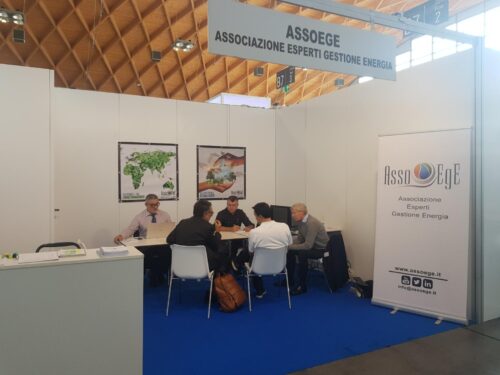
Good energy management requires basically the same things that are required for the good management of any other asset, namely:
- adequate knowledge of the system concerned,
- adequate resources, in quantity and quality and proportional to the managed value,
- company-wide shared procedures and well-defined responsibilities,
- commitment and attention of the top management.
The criteria to be followed can be, among other things:
- Applicable law and regulations (mandatory),
- the goal of minimizing costs while taking into account externalities and future boundary conditions, for example zero greenhouse gas emissions in 2050*,
- UN Sustainable development goals,
It is important that the organization makes explicit which criteria it intends to follow for its energy management.
* Proposal for a DIRECTIVE OF THE EUROPEAN PARLIAMENT AND OF THE COUNCIL on energy efficiency of 14-07-2021.
How to proceed
It all starts with an energy audit in order to get a complete picture of the energy system as it is now. The results of the audit must be the basis for the preparation of a medium-long term management plan, the Strategic Plan (SP) and the creation of an energy accounting system(the EAS). The SP must include:
- the criteria to be followed for energy management activity,
- long-term goals, e.g. where do we want to be in 2050,
- the intermediate objectives, for example for 2030 and for 2040,
- an energy policy, i.e. the set of rules, objectives and time lines that define the daily management and investment plans,
- the implementation plan, i.e. a detailed plan that illustrates how the company intends to get from the current situation to the point of arrival (Roadmap for the Energy Transition).
There exist international standards for the management of energy that can be followed, for example the ISO 50001. One can do so, with- or without third party certification.
The drafting of the Strategic Plan is very important in order to avoid so-called “lock-in investments”, that is, investments in technologies which over time become an obstacle in the next phases of the energy transition.
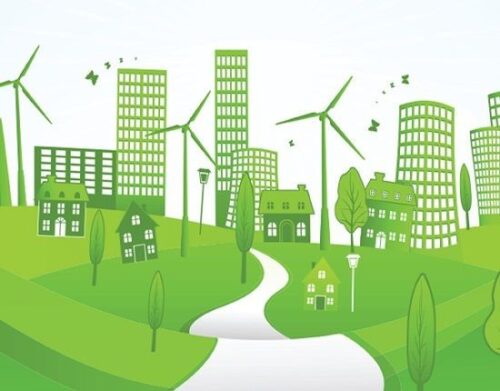
the energy audit
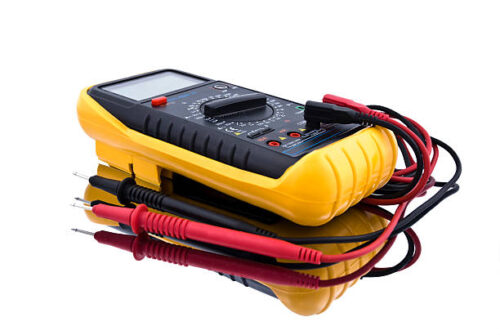
An energy audit is defined as systematic procedure with the purpose of obtaining adequate knowledge of the existing energy consumption profile of a building or group of buildings, an industrial or commercial operation or installation or a private or public service, identifying and quantifying cost-effective energy savings opportunities, and reporting the findings.
The energy audit is neede in order to obtain the information regarding the energy system which is required to be able to develop the Strategic Plan mentioned before.
Energy accounting
Energy Accounting consists of the systematic recording of energy consumption and is the first step to improve the energy efficiency of an organization. Indeed, reporting on energy consumption is becoming more and more a standard practice for a growing number of organizations. More specifically, energy accounting is needed for:
- The monitoring of the energy performance of an organization over time,
- The calculation of the main EnPI’s (energy performance indicators) of energy systems,
- The comparison of the energy performance of a system with the results of similar systems elsewhere (bench-marking),
- The design of new, more efficient energy systems or improve existing ones.
To be useful, energy reporting must follow certain basic criteria and the results should be presented in such a way that someone else with a reasonable good understanding of the subject can understand the data without ambiguity. For energy accounting services, Studio Caramelli uses the standard developed by AssoEGE1) in collaboration with FIRE2) (you can download the relevant documentation here). This model traces all principle energy flows in the system, vector by vector and is very flexible which makes it applicable in almost every organisation. Also it provides information regarding the flows of renewable energy, the flows from- and to energy storage devices in the system, the internal energy production and the transformation processes in the system. By identifying clearly the flows of final energy (vector by vector) it also allows for a meaningful analytical energy accounting by attributing each energy vector to a specific centre of energy consumption, according to the needs of the client.
The results of this energy accounting model can constitute a valid basis for carbon accounting (scope 1 and 2) or the reporting on other emissions linked to the use of energy.
1) Italian Association of Certified Energy Managers.
2) The Italian Federation for energy efficiency.
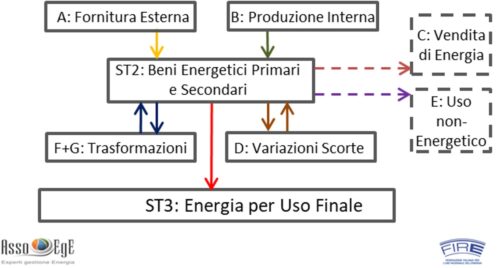
the energy manager

The Article 19 of the (Italian) Law No. 10 of 1991 defines the energy manager as the “Responsible for the conservation and rational use of energy”, charged with identifying actions, interventions, procedures and anything else necessary to promote the rational use of energy, to ensure the energy accounting included the related costs and the use of final energy and to prepare the energy performance data related to its activities. In practice, the activities of the energy manager can be much broader.
The function of the energy manager within a company or organization may, among other things, include the following activities:
- monitor, record, archive and communicate the main flows of energy present in the system and their final use,
- ensure the supply of energy at the best conditions offered by the market,
- develop strategies and plans for their implementation, to ensure the future supply of energy taking into account the need to significantly reduce the use of fossil energy,
- where possible, to propose, introduce and follow the requests for incentives for the investments necessary to reduce the use of fossil fuels,
- implement and manage an Energy Management System (EnMS) and, if necessary, ensure certification by a third party according to EN standards.
- communicate to all the people present in the company what they need to know to make their activities and their behaviour consistent with the objectives set within the EnMS.
energy services provided by Studio Caramelli
In the field of energy management, Studio Caramelli can assist its customers:
- With the development of a long-term strategy for their energy policy,
- By ensuring the role of (external) energy manager,
- By ensuring the energy accounting following the AssoEGE/FIRE standard,
- With the development and evaluation of new concepts for their energy systems,
- With the optimization of their thermal energy system using a Pinch Analysis,
- With their efforts to reduce the environmental impact caused by the use of energy,
- With the financial analysis of investment plans in energy efficiency,
- With the preparation of requests for incentives (in particular for White Certificates),
- With their search for third-party financing (EPC contracts or long-term lease agreements),
- By carrying out an energy audit according to the EN 16247 standard.

our resources
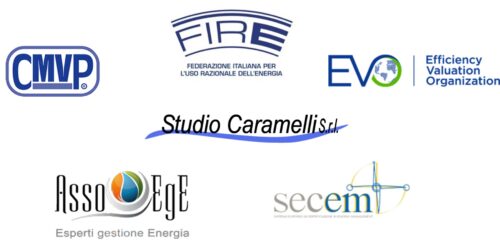
Studio Caramelli Srl has among its staff a professional qualified as Certified Expert in Energy Management UNI CEI 11339 by Secem and as Certified Measurement and Verification Professional (CMVP®) by the Association of Energy Engineers (USA).
Also, Studio Caramelli S.r.l. is member of the Italian Federation for energy efficiency (FIRE) and through its staff, member of the Italian Association of Certified Energy Managers (AssoEGE).
